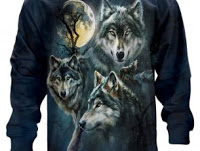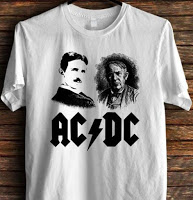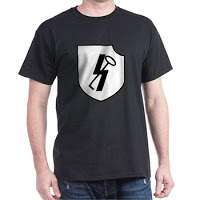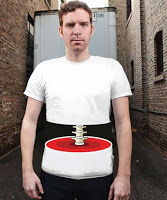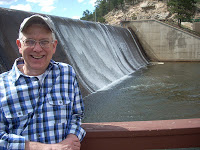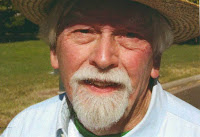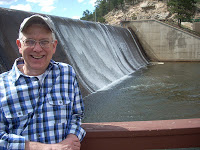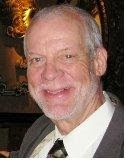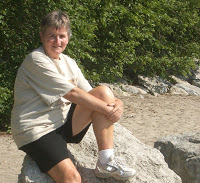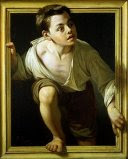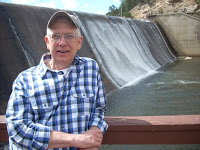how people dress, especially young people, I have found that they very often
advertise their personalities and beliefs by their choices of T-shirts with
pictures and messages. Other than
wearing obligatory T-shirts with the logos of the places where some of them
work, peoples’ choices of T-shirts are as varied as are the people themselves.
surprising to me that many young guys wear T-shirts that display bold
profanity, especially that over-used, four-letter word. I also don’t understand so many people’s
fascination with skulls. Some of the
images, as well, often are obscene. Back
in the days when one Neanderthal used to be friends with me, his Christmas gift
to me was a four-panel, boldly colored T-shirt displaying bare butts and four
kinds of farts. I’m not quite sure why
he felt I would find this T-shirt charming, but it certainly does represent the
way he thinks.
very popular among a certain group of people whose lives revolve around
mega-businesses posing as sports teams.
Naturally in Denver, I see beer-drinking fat guys and spindly legged
septuagenarians proudly wearing overly-expensive Broncos T-shirts, hats, or coats. The more cosmopolitan wear international
soccer shirts.
compelled to wear clothes with political statements. At the time of this writing, there appear to
be a large number of people sporting T-shirts and ball-caps stating “Trump – –
Make America Great Again,” which sounds to me to be an oxymoron.
T-shirts out in public. To begin with,
most of them have no pockets. I need
places to stow my cell-phone, along with a number of other items that do not
fit conveniently into my pants pockets.
Still, I once bought a knit shirt with collars that displayed the Gryffindor
emblem; but that was a hundred pounds ago, and I don’t wear it.
wearing T-shirts as often as possible, so I found for him one with an elegantly
painted scene of timber-wolves, similar to the picture here. Also, we both enjoyed the comedy-movie
“Moonrise Kingdom” that included a whole pack of boys who were members of the
fictional “Khaki Scouts of North America;” so I found where he could acquire
one on-line, and he soon was wearing it.
occasionally are clever, such as, “Never judge a book by its movie.” Then, there were, “I’m a virgin. This is an old T-shirt;” “I’m not gay, but
$20 is $20;” and “Duct tape can’t fix stupid, but it can muffle it.” My mother was an English teacher, and she
taught me that I always should remember and use good English. So, I suppose one T-shirt appropriate for me
would be the one I saw that says, “I’m silently correcting your grammar.” For those with an interest in Roman history,
there was the one that stated, “I’m being raised by wolves;” and it included a
drawing of Romulus and Remus being suckled by a she-wolf.
Vilanch, who for years was in high demand by many Hollywood celebrities to
write truly funny jokes for them, reportedly had closets containing thousands
of custom-made T-shirts with his original comedic quips. Another person with a huge number of T-shirts
(but also including regular shirts, jackets, ball-caps) is my acquaintance
Larry who has suffered his whole life with trains-on-the-brains. I have to admit, however, that many of the
train images are quite eye-catching. Any
railroad will do, but he especially is fond of anything with Union
Pacific. There also is a shirt for
frustrated computer-users that states, “My computer beat me at chess, but it
was no match at Karate;” and it portrays an angry user kicking the hell out of
his computer.
about dogs or cats, and there are plenty of T-shirts with pictures of
them. To this day, the cartoon-dog
Snoopy still is popular. I am somewhat
puzzled by how many people wish to display images implying death. Are these people nihilistic? I suppose that it’s inevitable these days
that many shirts announce pro-marijuana slogans. And of course, some people wish to declare
their great admiration for various “rock-noisicians.“
with portraits of cultural icons.
Someone in my book club once gave me a T-shirt with the name and image
of the writer Kafka on it. I wore it
once or twice when he was around, merely out of politeness. I’ve seen T-shirts with pictures of James
Dean on them. Now that’s going back in
time, but he is still cool.
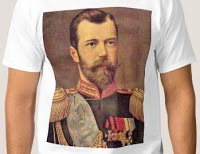 Going back even further in
Going back even further intime, there still are people, both in
Russia and elsewhere, who have feelings for the murdered Romanov royals and wear
T-shirts with elegant images of Czar Nicholas II or his son Alexei. Then, I recall seeing a humorous shirt that
was captioned, “Marx, Lenin.” In this
case, however, the pictures were of Groucho Marx and John Lenin.
AC/DC. I saw an inspirationally
conceived T-shirt that states in big, bold letters, “AC/DC.” Above that, however, are portraits
of the Serbian-American, genius-inventor Nikola Tesla and DC-proponent Thomas
Edison. I thought this one to be quite
clever. Of course, AC/DC has another connotation
as well.
of T-shirts are created to make money. Considering that fact, I would think that a
company first conducts market-research to
determine that there is a large enough
market to cover the manufacturing cost
and to make a profit.
the T-shirt I stumbled upon that sports a
large symbol of the 12th
Hitler-Youth Panzer Division. Do boys actually buy and wear
those T-shirts? They either don’t care what people think, or they are
demonstrating that typical teenage
irrational boldness.
creative images that some T-shirt-artists have come up with. For example, I found an image of one that
appears to eliminate the stomach section of one’s torso and replaces it with an
image of just a section of spine, a little creepy but very
effective.
passion of mine, so those T-shirts with music-related pictures and captions
have captured my attention. There was
one of Beethoven with his quotation, “To play without passion is inexcusable.”
one for members of boys’ choirs. Printed on it was a musical treble clef, and
below it the caption read, “Here comes treble!”
earlier piece that, some time ago, I met a waiter whose musical passion was the
more obscure and currently less popular genre of Baroque
opera. His father was an opera-tenor; and he, too,
was unusually passionate about Baroque vocal
music. Their greatest opera-hero was the
superlative soprano-castrato Carlo Broschi, stage-name
“Farinelli.”
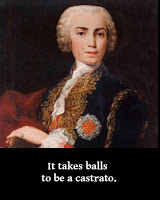 He very much wanted to have
He very much wanted to havesome high-quality T-shirts printed up with
Farinelli’s portrait. When he told me the caption that he
wished to print below the picture, I concluded
that it took first prize for irony: “It take
balls to be a castrato.”
examples of T-shirt choices. For fun, I really would like to look into Bruce
Vilanch’s T-shirt closet. I could take
pictures of some really funny images and captions.
wake up tomorrow morning to find that I had turned into some teenage kid, I
might consider wearing T-shirts. That’s
not likely. I’ll stick with boring
shirts with pockets, buttons, and collars.
the Author
people and their life stories. I also
realize that, although my own life has not brought me particular fame or
fortune, I too have had some noteworthy experiences and, at times, unusual
ones. Since I joined this Story Time
group, I have derived pleasure and satisfaction participating in the group. I do put some thought and effort into my
stories, and I hope that you find them interesting.
